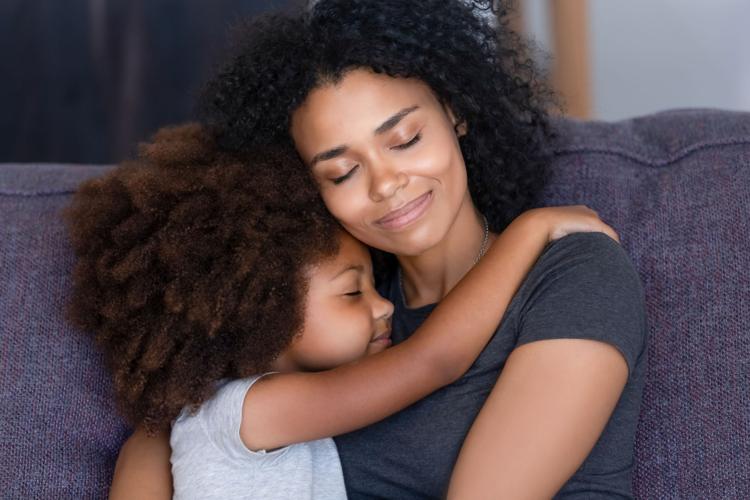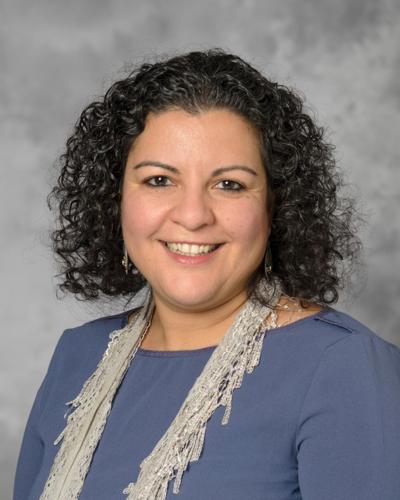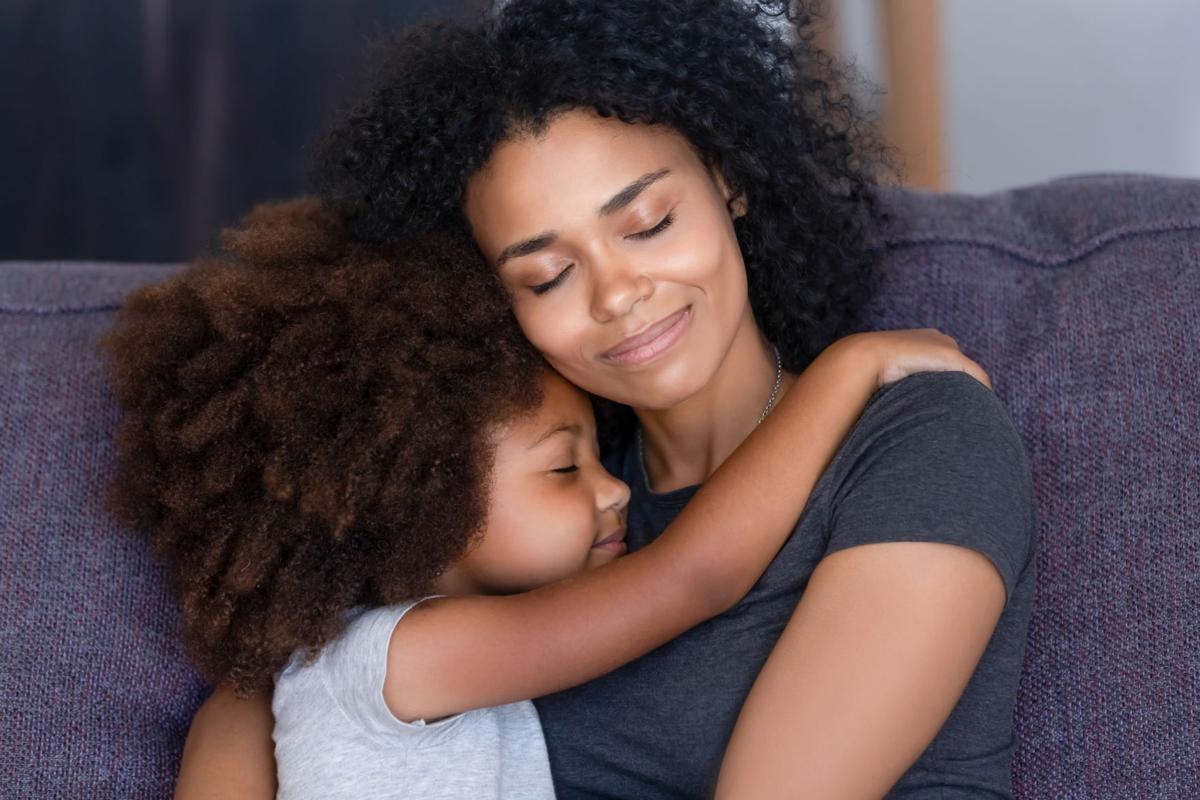We're sailing some uncharted parenting waters at the moment and there are a lot of ways our childrens' mental health, emotions and well-being are being impacted by what we're all experiencing.
Wondering how to keep calm and parent on?
Dr. Noshene Ranjbar, an assistant professor in the Department of Psychiatry at the University of Arizona College of Medicine and a faculty of the Center for Mind-Body Medicine, spoke with #ThisIsTucson earlier this week and shared some simple ways parents (or anyone raising children) can help alleviate some of the stress and anxiety children may be feeling.
When a child's brain and nervous system is developing it needs key things from its environment to develop optimally, Ranjbar says — including a sense of safety, routines, good nutrition, rest and activity.
Among the list of things that many of us raising children never thought we'd have to navigat…
"In a time when there is a natural disaster or a community that has gone into kind of like a warzone — like what we're experiencing now — on so many levels, the child's system can become distressed," Ranjbar says. "The routines are off, the parents and other caregivers can be irritable and stressed and worried about finances or whether they're going to have childcare or not, or can they leave the house. All of those things are what the child is seeing in his or her environment."

Dr. Noshene Ranjbar
She added that a child's nutrition can be off if there's not enough food to eat or families aren't eating properly and sleep can be disrupted by inconsistent bed times, late night TV watching and more time spent on video gaming with schools being closed.
"For a child who is developmentally normal, all of those things can be stressors and challenging during this time, but particularly for a child who is already struggling in some way," Ranjbar says. "Whether it's with anxiety or depression or ADHD, or some trauma that has happened in the past... this kind of struggle in this current situation can be a reminder of a time when things were not OK, or parents were divorcing, or no one was around, or they got hurt in some way. Because when our sense of safety is compromised, our mind goes back to the last time that happened even without thinking about it."
Add in worrying about loved ones, not being able to see family and friends or missing out on play dates, parties and social events and there are a never-ending number of ways a child can be affected, Ranjbar says.
She put together a mnemonic device, using the word Earth, to give parents and caregivers a variety of things they can do to help create some normalcy and security in these uncertain times.
"One of the ways I think about about self care and reconnecting to a sense of groundedness and just feeling like we belong and that things are going to be OK is reconnecting to the Earth," she says.
"A lot of times when I facilitate mindfulness practices or meditations with kids or with adults, I remind them that sometimes we have so much going on around us that we forget to feel our feet on the ground and actually feel the Earth and sensations of our body on the Earth. So the Earth can be an easy way to imagine a sense of rootedness or groundedness, or something that's constant underneath us."
Here's what she suggests:
Editor's note: These comments have been edited for clarity and length.
E - Emotional support, empowerment, engaging in activities
- Emotional support: "Allowing kids to express their emotions if they are feeling sad, happy, angry or fearful. We know that when we stuff things in or pretend everything's OK or keep our emotions bottled up, that's when they can cause problems. One thing I like to say is that emotion is really energy in motion. And so, when we allow emotions to move, they don't take on a whole life of themselves."
- Empowerment: "Empowering kids to do something with their time — whether it be doing something that they've always wanted to do, building something, creating something, something that they can do physically in the home or in nature — whatever is available that allows them to feel that they can take an action, they can do something. And that can be anything from writing a story to a thank-you card to somebody who's on the front line, or creating a gift, or arts and crafts or something that can feel like, this is my way of doing something positive."
- Engaging in activities: "If we just sit around and do nothing, of course our mind is going to want to think about all the possible things that could be not positive. But when we're engaged in some sort of activity, then that actually allows the emotion to move and it allows us to not stay stuck in those patterns of overthinking that can happen."
A - Advocate and assist others in need
- Advocate: "This is a good time to advocate for those who are struggling. So maybe write a letter to their grandma or grandpa or someone who's sick or is struggling during this time (to) feel like they have a voice.
- Assisting others in need: "(This can be) lending a hand, helping with chores, helping with outdoor activities, anything that might be helpful to others who are at the front lines or are already over extended with the number of things that they have to do."
R - Reassure, reconnect, routines and readiness
- Reassure: Use reassuring statements like, "we are going to be OK, you're going to be OK. Remember the Earth underneath and that no matter what's happening we can always depend on gravity."
- Reconnect: "Reconnect with family, with friends, with each other, the children's own sense of beauty, the greatness, voice and power. It's really a time of reconnecting with what matters the most with, with basic needs, rest, connection, love and care."
- Routines: "Re-establish a sense of ... OK, in the morning, this is what we're going to do from this time to this time, this time or this time, to have some sort of structure in the day."
- Readiness: "This is a time where we are all being asked to be prepared the best way we can emotionally, mentally, physically... to be ready for as much as we can to be flexible when there is a need or something to be changed that's different than what we prefer for it to be."
T - Thankfulness and think before you act
- Thankfulness: "Thanking whatever they believe in — the creators, the earth, the animals, the plants, the waters, the sky, their parents, their teachers, their friends. Being in a place of thankfulness and gratitude for what we do have and really bring the focus of, yes, we can't go to school tomorrow and yes this party is canceled and also, don't forget what what is still present. The earth beneath, the music we can listen to, the movie that we can see, the parent or loved ones that we can sit next to — to really change the focus to what we do have."
- Think before you act: "This is the time to really use your mind and be thoughtful about what is the science, what do we know, what is going to be the highest good and the highest support for the for the whole of humanity and the earth. And so this is the time to think before we act and not just go with what would be convenient."
H - Health
- Health: "Health is the most important, it's the biggest gift that we have, it's the biggest investment that we have, it's the biggest commodity that we have. And so to take time to heal, whether we're a little sick and need time to heal physically because we've got the sniffles, or the cough or whatever ... or heal emotionally from what we're all going through. To actually take time for the healing of the mind, the emotion, the body and not try to shortcut the process and just pretend everything's great."







